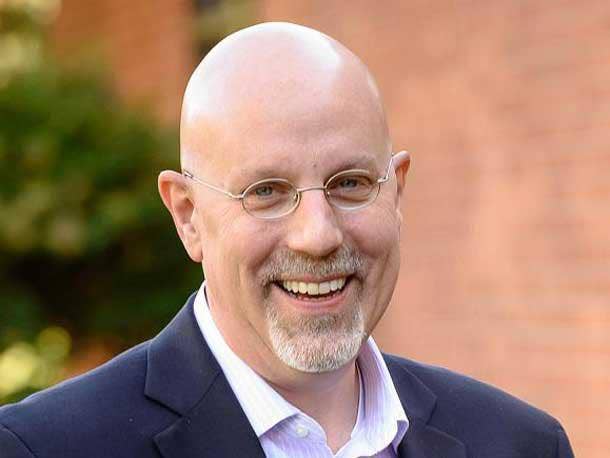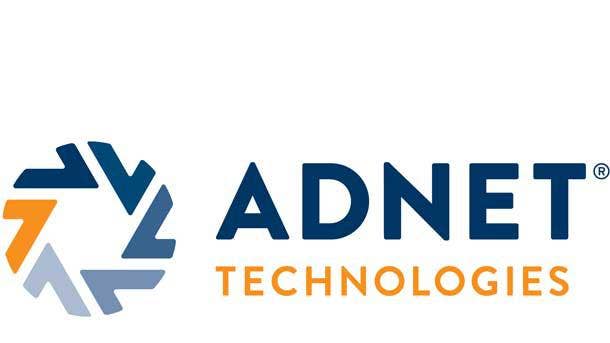Managing IT Talent In A Talent-short World: MSP Adnet Shares Its Secrets
‘I think for any employee, they want to know what their growth capability is. And isn’t the largest challenge for a small employer to show a future trajectory? I think without question the largest selling point for our current and new staff is to show them they’re part of something larger and that there are opportunities within the entire ecosystem for them to work together,’ says Adnet Technologies CEO Chris Luise.

The Fight For IT Talent: A Never-ending Battle
Adnet Technologies, a 30-year-old Rocky Hill, Conn.-based MSP, is like any small MSP in that it has to find ways to serve nearly unlimited customer needs with limited resources, particularly when it comes to IT talent. The MSP does have one advantage over its peers in that it was acquired in September of 2021 by Palo Alto, Calif.-based New Charter Technologies, which itself was founded in 2018 with support from a private equity firm, Oval Partners.
Adnet Technologies CEO Chris Luise told CRN that being one of 16 MSPs that are run independently under the New Charter banner helps alleviate some IT talent issues by making it easy for each of the MSPs to call on its sister companies to help when their own skillsets or geographical location don’t match customer needs.
However, Luise said, to succeed, Adnet Technologies still has to rely primarily on its own IT talent, which means it has to have ways to attract and retain the right people. And that means depending on its own culture in addition to working with New Charter.
“If we wrap our business around people’s life objectives and people’s goals and we collectively support and celebrate each other, that has a contribution back to our culture. ... If we can figure out how to meet these people with the things that are important to them and important to their professional as well as personal lives, then I think what we end up with is deeper commitment and deeper inspiration for why they work for us as a company,” he said.
For a look at some of the strategies Adnet Technologies uses to attract and retain IT talent, click through the slideshow.

How do you define Adnet?
We’re an MSP managed cloud and cyber security firm located upstate New York and in Connecticut, New England region. And we’re part of the New Charter Technologies platform. New Charter is a national MSP that’s relatively new. So there’s 16 organizations that are rolling in under that right now. That’s relatively new for us. We got onto that platform in August.
How did becoming part of New Charter change your business?
Not much. More access to different pieces of our business. I think if we take a step back, it’s a transition for sure. We have an opt-in partner model if you will. So everybody who’s an operating company president is an equity holder in New Charter. We’re building out this large partnership so that we can basically attack the market in a much more coordinated fashion. It’s very low integration. So my partners in, pick a state, Massachusetts, or in California, we operate very collaboratively. ‘Have you seen this? Can you give me help with that?’ It gives us a lot more scale, and in this time, scale is extremely important. We have cybersecurity expertise and much more bench. To go from 70 employees, which is what we’ve built into as Adnet, to now 700 employees, scale matters. The ability to fight for talent, let alone clients, but fight for talent is a winning proposition right now. And we’re super excited to be a part of this.

As part of New Charter, are there any new skill sets that you’re now able to access that you really couldn’t do before as an independent?
Oh, for sure. I’ll give you a great example. We’ve been very focused in our managed cloud business. You have to be an expert in some domains, right? So we’ve chosen to focus on the Microsoft domain, and a secondary focus in the AWS domain. But now we’ve got [sister companies] with private data centers. Having private cloud is important to certain solutions for us. And we didn’t have that. We didn’t spend the capital to build our own private data center, as one prime example. But we’re better able to acquire [the necessary] talent now much more seamlessly as a national MSP. We’re talking about national benefit programs and those types of things. That ability to scale has really made us more competitive and better able to adopt our employees remotely way outside of the regions that we normally would have. A perfect example is California. It has very different labor laws. If I have with a remote employee in California, I have to wrap my head around those labor law issues. To have that figured out for us by New Charter is a huge relief. And that as well as buying power and those types of things is tremendously helpful and absolutely drops to our bottom line.

So as a part of a larger company now, do you still have your own hiring focus or do you go through New Charter?
Nope. We have our own hiring focus. We have our own culture as Adnet Technologies. So while we’re part of this larger organization, we’re still independently run and focused organizations. One of the things that really helped us choose New Charter is that they’re very culture focused. And we had a predication that we did not want to join private equity, as private equity lacks a stellar reputation: we have to drive the bottom line, the deal has to pay for itself and, how is that going to come out? That’s not our focus. Recognizing that we’re able to continue an award-winning culture and continue to acquire talent that wants to be a part of that is important.
When we went through our due diligence at the time, we were named best place to work in the state of Connecticut eight years in a row. Eight years. And we were super proud of that. We brought that to the table and said we’re uncomfortable. ‘How would you guys view this?’ And they said, ‘That’s one of the reasons why you’re here.’ Culture matters to this private equity, and that was an opportunity for us to say, ‘Yeah, I think these guys get the challenge of the marketplace.’ And the challenge of the marketplace is talent retention and growth. That was something extraordinarily important to us, and they embrace it.

Prior to the acquisition, you probably did not have a presence in a place like California, right? But now you’re looking to hire in California?
We’re looking to hire everywhere. If I take a step back, one thing that we decided years ago was that we needed to meet employees where they were. And some of our best talent were people that maybe were reentering the workforce or were going through life changing situations. And we need to meet them where they were. This was before COVID, and we were pretty comfortable with flexible work arrangements. And when COVID hit, obviously that changed the rest of our organization to have to embrace a work from anywhere culture. But we’ve been that before COVID. We’ve just completely pivoted and said we’ll work from anywhere rather than saying, oh yeah, we’re comfortable with how you want to work.
I think the remote workforce issue was more of an aha moment for us during COVID in seeing that we can hire from anywhere. Then once we became part of the New Charter platform, we realized how much easier that was going to be for us. Meeting employees where they need to be, having an award-winning culture, as I mentioned before, but also having benefit programs that were supportive of those different lives that they have. A great example was when we started the company, I was in my twenties and life was far different for me then. The worst thing that was going to happen for me was maybe the birth of a child. That was going to mean some time for me. But as we get older, we start to recognize that it’s not just new families. It may be aging families, and elder care, and children off to college in Europe, and all kinds of things that people work for to support their families.
That may not have been my focus in my twenties, but it sure became obvious to me later in life. And understanding that our benefits and our policies needed to match those demands, and that if we could meet people where they need to be met from an employment perspective, and be supportive of their different life dimensions, then that would pay us back. That would be an enormous contributor to our culture and would add to that tapestry, if you will, of what makes Adnet a great place to work.

What did you do?
So we came out I guess probably five or six years ago with this thing called RTO, responsible time off. We didn’t call it unlimited vacation time, but we said there are those once in a lifetime opportunities that you have to take. ...
If we wrap our business around people’s life objectives and people’s goals and we collectively support and celebrate each other, that has a contribution back to our culture. [Think of expecting fathers who] join the workforce. When my son was born, I took two days off. That was back in the early nineties. And I had some regrets with that. I ended up working for a Swedish insurance company, and in Sweden, they had 18 months to be split between the mother and father, and I could not wrap my head around that. ‘What do you mean you’re going to be gone for nine months’ to the father of this family. That is a powerful thing. And it’s not necessarily for everybody, and I get that. But if we can figure out how to meet these people with the things that are important to them and important to their professional as well as personal lives, then I think what we end up with is deeper commitment and deeper inspiration for why they work for us as a company. It’s not just the paycheck. It’s that this company is with me on my journey. And that’s really where we’ve always tried to be.

How does a company do that?
We’ve gotten more mature about it over time and looked at how to build this into a policy.
How do we break the mold? This is not FMLA (Family Medical Leave Act). That’s maybe a government response to helping a society move forward. But we wanted to be ahead of it. So we’ve instituted work from anywhere policies. We have an RTO policy. And even our workspaces are high tech collaboration centers. We do have places where people can meet and work on projects together and team up, but also collaborate where the remote workforce and the physical workforce can be actively engaged. [Microsoft] Teams became really hot in the last couple years, but we’ve been kind of doing this for quite some time. The technology’s getting better to support our endeavors, but we’re a technology company. Why are we not leading with that technology to show our clients and our peers within the communities that we operate in how much of a game changer it can be. And typically we blow people’s minds. ... I like to have that competitive edge and demonstrate it.

Being part of a larger organization like New Charter, if you look to hire in an area where you haven’t had a big presence before, but there’s also other companies within New Charter that have a presence there, do you run into hiring conflicts?
Not at all. If I want to hire somebody in Los Angeles, and we have a couple of member firms in that area it, that is going to probably be a remote job for our mission at Adnet. The fact that they happen to be there is coincidental. And we have organizations in Connecticut, in our backyard, that are clients of our sister organization in Los Angeles. So we absolutely can support and help each other, but our remote employee is an Adnet remote employee. They’re just all within the New Charter framework, but that rolls up into my organization.
So how often do your employees assist sister companies within New Charter?
As needed. We work on a lot of collaborative projects together. We have a couple of centers of excellence in Adnet, and one of them happens to be Teams Voice, where we’ve moved a lot of organizations into not just video, but also the audio side and replaced phone systems. We don’t have that expertise in other locations, so we’ve been able to support them and get their clients and their local markets onto the platform, for example. But there’s a lot of stories like that. So as needed, we have a collaboration system that we can call for help on and see if anybody has expertise. And we’re always there to support each other.
In the case you just talked about with Teams, was that you relying on your sister companies for help, or was that them relying on you for help?
In Teams, we helped them. But it could be the other way around. We have another organization that has deep resources in private data center, and we have a need for a non-public cloud challenge. And we threw that out into our collaboration center, and we had a couple of opportunities for our partner organizations to help us. So it works in both directions.

So for your employees, the fact that you’re collaborating with others within New Charter, is that a selling point for employees or is that one of the things they just have to deal with?
I think for any employee, they want to know what their growth capability is. And isn’t the largest challenge for a small employer to show a future trajectory? I think without question the largest selling point for our current and new staff is to show them they’re part of something larger and that there are opportunities within the entire ecosystem for them to work together. This is absolutely a strong motivator. We didn’t have that a couple years ago. It took 30 years to hit 70 employees. The growth trajectory is not as fast. But when you’re part of something, especially something as high growth as New Charter is, opportunity for those who want it--and I’ll put a caveat on that--is certainly a selling factor.
I have kids in the workforce, my own kids, and they are looking at their career and their trajectory. When hiring younger employees, typically we want to help them identify and obtain their growth trajectory. To do it as a small employer is very, very difficult. You will celebrate them if they leave Adnet, but we want to be able to invest in them and show their long-term growth over time. And even having said that, the number of employees at Adnet that are celebrating over two decades of service is remarkable. We’ve got quite a few. And I think that shows not just the growth trajectory from within, but horizontally growth as well.
How many people are you looking for right now?
Platform wide, enough to have three full-time recruiters working for us at New Charter. But even within Adnet, we absolutely are hiring right now. I can see us looking for another three to five people in the coming months.